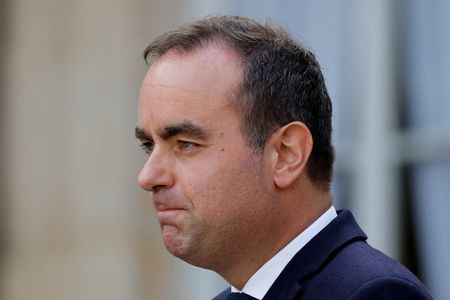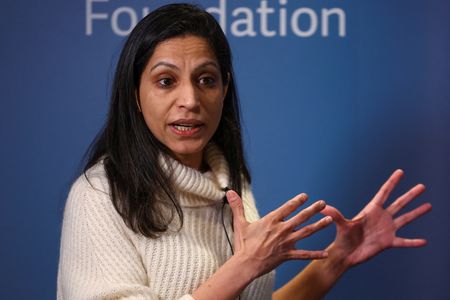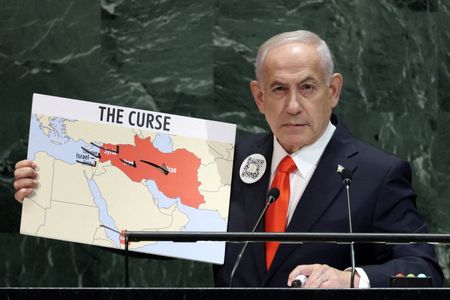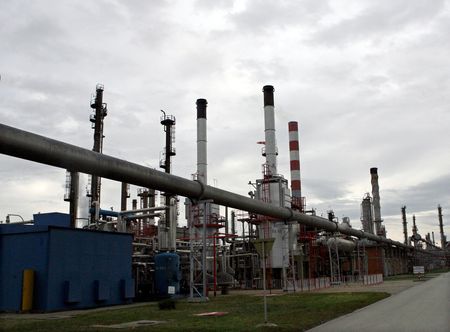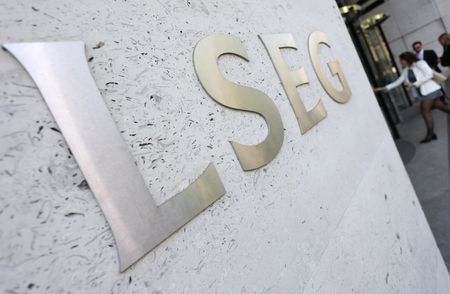By Sudip Kar-Gupta and Geert De Clercq
PARIS (Reuters) -New French Prime Minister Sebastien Lecornu ruled out on Friday re-introducing a wealth tax or suspending an unpopular pension reform, giving some of the first indications of his policy plans as he tries to pull together a 2026 budget, and a government.
Since President Emmanuel Macron made him his fifth prime minister in less than two years amid a deepening political crisis, Lecornu has said little on his intentions, instead focusing on consultations with party leaders and unions.
“I am starting from a blank script,” he told Le Parisien newspaper in an interview. His predecessor, Francois Bayrou, was ousted by parliament over plans for a 44 billion euro budget squeeze next year.
Lecornu said he aimed for a budget deficit of around 4.7% of GDP in 2026, not much changed from Bayrou’s target of 4.6%, from a forecast 5.4% this year.
He said the draft budget would take into account the French people’s demand for more fiscal fairness. It would fall on parliament to determine the budget’s final package, he said, urging lawmakers to seek a consensus.
“It is parliament which will shape the nation’s budget,” he said, later adding: “In the end it will not be Lecornu’s budget: compromises will have to be found in the chamber.”
That will not be easy. Macron’s ruling alliance does not have a majority and likely needs the support of both conservatives and socialists to get a budget over the line. Two of the policies he ruled out – a wealth tax and a suspension of the pension reform – are key Socialist Party demands.
Socialist MP Arthur Delaporte, a party spokesman, said he choked reading Lecornu’s interview.
“I don’t see what changes in what Sebastien Lecornu is promising compared to what Francois Bayrou wanted to do,” Delaporte told RTL radio. “I see nothing but emptiness and a slope towards the same thing, that is, the continuation of Macronism,” he said, adding that if that was the case, Lecornu risked being ousted by parliament.
In his interview with Le Parisien, Lecornu warned that if France cannot agree to a budget between now and the end of the year, the deficit would risk hitting six percent next year. But he played down financial market worries about France’s debt, saying that “the IMF is not at France’s doorstep”.
He ruled out a proposal by economist Gabriel Zucman and backed by the Socialists, who want a 2% wealth tax on France’s 0.01% wealthiest in the 2026 budget as their price for support.
“There is political and societal demand for greater fiscal justice, particularly in order to restore our public finances. We cannot dismiss this debate out of hand,” he said. “Next, is the Zucman tax the right answer? The only answer? Personally, I do not believe so.”
Lecornu, who was appointed on Sept.9, said he aimed to pull a government together by early October.
(Reporting by Gabriel Stargardter, GV De Clercq, Sudip Kar-Gupta, Richard Lough, Elizabeth Pineau; writing by Ingrid Melander; Editing by Richard Lough)

